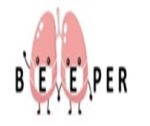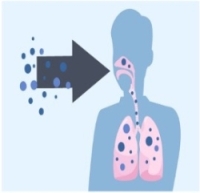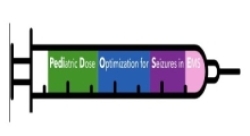All of Us Research Program
Funding from: NIH
The All of Us Research Program is an ambitious effort to gather health data from one million or more people living in the United States, accelerating research in broad and diverse areas. As an NIH study, All of Us is part of the Precision Medicine Initiative, aimed at advancing personalized healthcare that encompasses the patient's genetic information, as well as their social behavior, which also affects their health. Its enrollment mission is focused on highlighting historically underrepresented populations, such as racial/ethnic and sexual minorities. The data collected from this study (projected to be a 10-year program) can be widely accessed (with different levels of confidentiality) by high schoolers and University researchers alike.
 BEEPER (BEdside Exclusion of Pulmonary Embolism in children without Radiation)
BEEPER (BEdside Exclusion of Pulmonary Embolism in children without Radiation)
Funding from: NIH and PECARN
No study has been performed to prospectively record the presenting complaints, signs, symptoms and comorbidities of children who raised the suspicion of pulmonary embolism (PE). Clinicians must extrapolate what is known about PE in adults to children. Perhaps as a result, the mortality rate of PE is the same in children as it is in adults. On the other hand, tens of thousands of low-risk children and adolescents are unnecessarily exposed to increased lifetime cancer risk from ionizing radiation from CT scans done to search for PE they do not have. No clinical criteria have been developed to either estimate the probability of PE in children, or to exclude PE based upon information available at the bedside. This project will provide much-needed evidence for physicians to have a rational basis to launch a workup for PE, and also provide clinical criteria to exclude PE without the need for ionizing radiation.
SAnds-PPC
Funding from: NIAID
This is an observational study in 750 individuals aged 14 years or older, diagnosed with Community Acquired Pneumonia (CAP) who meet all eligibility criteria in Coccidioides (Valley Fever) endemic regions. This study is designed to provide data on the prevalence of primary pulmonary coccidioidomycosis among persons presenting with CAP in endemic regions. Among individuals diagnosed with primary pulmonary coccidioidomycosis, this study aims to describe the clinical course, predictors of the clinical course and compare the response to prescribed antifungal therapy versus no antifungal therapy.
PEDI-DOSE (PEdiatric Dose Optimization for Seizure in Emergency Medical Service)
Funding from: NINDS and in affiliation with PECARN
 An emergency medicine study designed to evaluate if a standardized method for paramedics to administer seizure medication leads to timely delivery of the right dose. The purpose of this study is to simplify how paramedics give medication to seizing children to stop the seizure and to decrease the number of children still seizing when they arrive at the emergency department. By replacing complicated dose calculations with age-based standardized dosing, we aim to increase the number of children who receive the right amount of seizure-stopping treatment before arriving at the hospital.
An emergency medicine study designed to evaluate if a standardized method for paramedics to administer seizure medication leads to timely delivery of the right dose. The purpose of this study is to simplify how paramedics give medication to seizing children to stop the seizure and to decrease the number of children still seizing when they arrive at the emergency department. By replacing complicated dose calculations with age-based standardized dosing, we aim to increase the number of children who receive the right amount of seizure-stopping treatment before arriving at the hospital.
Join the program to learn more about the other studies we screen!

